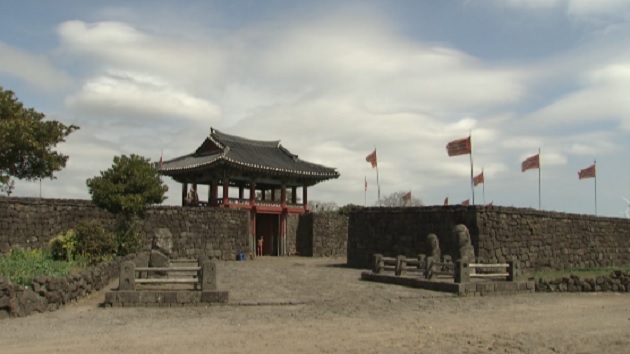
This week on Jeju: A to Z, Todd Thacker takes a brief look at a village in Seogwipo that is dedicated to keeping the island’s traditions alive. Seongeup Folk Village offers visitors the chance to experience Jeju life as it once was.
[Slug CG] Pyoseon-myeon, Seogwipo
Located some 34 kilometers southeast of Jeju City, Seongeup Folk Village is a living testament to Jeju’s traditions.
What makes it particularly noteworthy is that its residents live their day-to-day lives while also helping visitors to learn about ? and appreciate ? Jeju culture.
[Slug CG] Stone culture, craftsmanship, architecture on show
So much of what constitutes Jeju’s history relates to its stone culture. Over the centuries, islanders used what they had on hand to build with. Their craftsmanship and traditions grew into a rich tapestry found all over the island.
Among the cultural properties preserved at Seongeup Folk Village are some 300 traditional low-roofed, thatched houses, a network of winding stone fences and windbreaks, and many Jeju dolhareubang stone statues, among others.
[Slug CG] Jeju food, language, crafts, music are presented
Of the intangible cultural assets preserved here, knowledgeable locals who cherish Jeju’s native foods, its handicrafts, language, music and more, are on hand as educators.
In light of the attention to detail and care taken to preserve the island’s unique characteristics, the entire village has been designated as Jeju Important Folk Resource No. 188.
[Slug CG] Todd Thacker
Although Korea, like many countries, has seen its share of traditions being replaced by modern life, Seongeup Folk Village is special in that it takes a proactive approach to ensure that Jeju’s culture is preserved for future generations.
Todd Thacker KCTV





